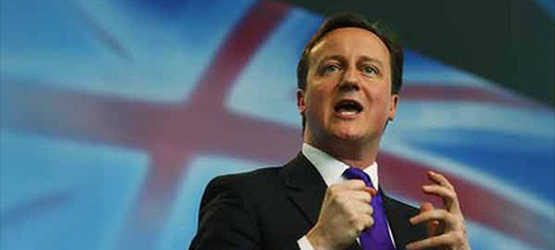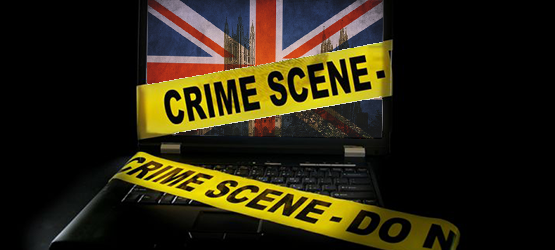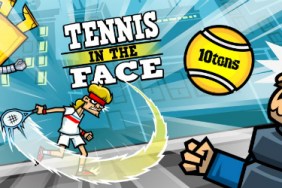With the developing situation regarding the UK’s upcoming ‘Porn Block’, the Daily Reaction crew of Sebastian Moss and Dan Oravasaari discuss the realities behind internet censorship, the ramifications of allowing the government to dictate what material we consume and what this means for gamers as we move forward.
Dan: If you have been watching the news as of late you probably have heard about the regulations that are being drawn up by the British government in the hope to control segments of the internet. David Cameron (no relation to the Avatar guy), the UK’s Prime Minister, announced in late July that the UK government will be taking steps to protect children from harmful content on the internet and has begun to take steps to enact their plans.
One of the most controversial aspects of the scheme is the mandatory inclusion of a search filter that would potentially block any content deemed illicit from being seen by people of any age group. This legislation will force search engines like Google to implement filters that will stop any search that returns a site or image with the offending keyword being able to be accessed.
On top of this move to block people from viewing ‘forbidden’ material, Cameron states that this is one of the many steps that must be taken to protect children from pedophiles and the loss of innocence.
While no one is disputing that pedophilia is a real issue, for obvious reasons, concerns about the ISP filtering process and it being handled by Huawei have raised a number of eyebrows. Huawei will manage the terms that will be ‘blacklisted’, essentially having the power to play god with the internet. There are also growing concerns regarding Huawei’s supposed involvement with the Chinese government, a fear that has already led to the company being blocked from bidding on government projects in the United States and Australia.
Former CIA chief Michael Hayden said:
At a minimum, Huawei would have shared with the Chinese state intimate and extensive knowledge of the foreign telecommunications systems it is involved with. I think that goes without saying.
This is what the UK have to look forward to next year.
Seb: Dear lord, I have never been so sad to be living in this country. David Cameron is wrapping this plan in the classic ‘think of the children’ guise. The excuse that this will stop pedophilia is downright stupid – banning child porn is already in effect, spreading it is already illegal (and rightfully so). The non-profit Internet Watch Foundation works with Google, ISPs and the government already to track down, remove and help prosecute those kinds of websites. Unfortunately, they’re woefully underfunded – but instead of getting money to do the work they do so well, a vast amount of funding is instead set to go to a for-profit corporation with alleged ties to the Chinese government.
This will not change the horrific pedophilia problem inherent in most cultures – money needs to be spent on better schemes that help children and track down people who try to groom young people (something that can’t be filtered). Instead, it will just curb our individual freedoms, using pedophilia as an excuse – which is just sickening.
This ban will not just block child porn – which everyone should agree with – but ‘normal’, perfectly legal, see-it-on-TV, adult content. All of it. Stuff that is completely above board will be blocked by ISPs, despite porn being a part of human culture since at least 3,000 years ago.
It doesn’t end there – the filter could also block violent material, extremist and terrorist related content, anorexia and eating disorder websites, suicide related websites, alcohol, smoking, web forums, esoteric material and web blocking circumvention tools, among other things. Australia enacted a similar ban that allowed them to block websites that were completely unrelated, and just talked about activism. Here in the UK, bans on public WiFi networks don’t even allow you to search for news about porn blocks… because they contain the word porn.
Now, thankfully, people can contact their ISP and ‘opt out’ of the ban. But, not only could that be highly embarrassing for most people, it’ll lead to awkward conversations at home – “honey, can I turn the porn on?” – that many will avoid by keeping the block on. Oh, and if you’re a kid who wants to read one of the many articles that will get unfairly blocked by this, do you really want to have to ask your parents to remove the porn block?
This is an invasion of privacy at the deepest level – just after the NSA and GCHQ scandal – and an attack on the internet as a whole.

Dan: Precisely, having to set up the introduction to this issue without blatantly expressing how idiotic and corrupt this whole issue is was incredibly difficult. But, instead of reiterating exactly what Sebastian has said, I will bring up the question that everyone reading this will have: “what does this have to do with video games?”
Well there is a simple point that Cameron made when pitching the concept to the general public that I think will give you a better idea.
“My argument is that the Internet is not a sideline to ‘real life’ or an escape from ‘real life’ – it is real life. It has an impact: on the children who view things that harm them, on the vile images of abuse that pollute minds and cause crime, on the very values that underpin our society. So we have got to be more active, more aware, more responsible about what happens online.”
The point that Cameron tries to gloss over, but decidedly chooses to state is the ability for imagery to CAUSE crime. This statement alone simplifies the everlasting debate of violence in video games and their influence on a person’s state of mind. Sadly, I would like to just be able to say that if this regulation comes into being, it will be a problem – but it is no longer an if, but a when.
Personal freedoms are not a simple object that can be taken away with a single swoop, and most will not notice them being chipped away to appease those looking for scapegoats, but the signs are becoming more and more apparent. I am not normally one to wave conspiracy flags or talk about politics, as I think both are vehicles for personal benefit and rarely mirror my own beliefs.
Now, you might look at this and say, ‘I am not from the UK, so who cares?’ Well, you really should, especially if you are currently residing in the US. During the 2012 Presidential Primary, Rick Santorum campaigned with a similar ideology against the distribution of pornography in the US.
As reported by Yahoo News:
“America is suffering a pandemic of harm from pornography,” Santorum’s official website reads. “Pornography is toxic to marriages and relationships. It contributes to misogyny and violence against women. It is a contributing factor to prostitution and sex trafficking.”
This is a hugely hot topic, and if the UK pulls it off, the US may soon follow.
Whether you are male or female (yes girls watch porn too) and you enjoy adult material, or even if you don’t, this is an issue that stems about personal freedoms and other’s ability to force their own prerogatives on you. Yes, the filters can be turned off, but the issue of political admission of guilt for the world’s interest in the naked body is a crime against human nature. If your child is simply being exposed to ‘adult’ material too early, then maybe you need to be a better parent and learn about the control options already available. If your child is circumventing them already, then maybe it isn’t the child that needs to be more mature, but you – as sexuality is not a negative thing.
Seb: Yeah, this is a massive assault on our freedoms, and one most people are steering clear of opposing publicly because they don’t want to been seen as pro-porn or anti-child. All that politicians need to do is to claim something is destroying ‘the children’, be it porn or games, and it’ll get support.
But this move could also fundamentally impact online journalism. Take PSLS – we’re not a porn site, in fact, we even steer clear of posting unnecessary video game boobage or borderline-naked cosplay galleries, but we’ve had plenty of articles that could be filtered – posts on pornstars, booth babes, dildos and penis monsters. Each one of those articles don’t actually contain any porn, and are pretty safe for work. But to an algorithm, it’ll easy get thought of as porn – just like the articles on porn blocks that are being filtered at the moment – and it’ll be blocked from the web.
Google has been trying to effectively block and rank things for years, have billions of dollars, the best employees and tons of experience, yet they can’t completely pull it off properly. Do we really think Huawei will be able to do it without collateral? Some porn sites will still be accessible – in particular the more hidden illegal sites – while some innocent websites will end up being blocked.
So what you’re going to start seeing with UK sites is that they’ll have to censor themselves to be visible to the vast majority of their audience. You’ll also see it in broader sites with global audiences that include the UK. And then you might see it pretty much everywhere if the US follows suit.
Sex, sexuality and sexual health are important topics that need to be discussed, yet it’ll be increasingly damaging to a website’s potential size and revenue if they do discuss them. Other filters have blocked “church websites because they mention wine, shops selling tobacco pipes, political blogs miscategorized as hate speech, lingerie shops for no clear reason and many more”. Equally, crucial articles helping people realize and explore if they are LGBT, or seek advice on such sensitive subjects, are at risk.
Vital mainstream coverage of topics deemed too risque by the government, or an algorithmic oversight, will decrease significantly, while small sites who do cover it will be blocked and lose traffic. All the while, those that need the content will lose out.
A worrying amount of publications will steer clear of things Huawei doesn’t like, both in games journalism and the industry as a whole. Britain’s great tradition of being the home of the free press is coming to an end, and it might just drag the whole of the internet down with it.
Filters like this being enacted without too much fuss will show that censorship in the name of ‘looking after us’ is a viable tactic for governments, and one can’t help but wonder what else this will lead to. Games are already as maligned as a 1980’s horror film, and we’re constantly teetering on the edge of video game censorship already. This entire porn ban was a ploy for votes from the right-wing Daily Mail (a UK newspaper) audience, who campaigned for this – and also campaign for censorship and banning video games.
Meanwhile, with the press possibly limited in how much they can report of taboo, adult subjects, AAA publishers could steer clear of such themes for fear of losing out on all the free coverage. At worst, we could see an increase in the censorship of games from governments themselves, as well as voluntary censorship from publishers to maximize publicity, impacting the creativity of PS4/Xbox One titles and beyond. Australia and Germany already censor games, but their market size is too small significantly impact publishers – if this censorship spreads, however, game makers may be forced to change their work.
What do you think of the impending regulations being put on the UK? Should we allow internet censorship? Can we speak up against politicians, even if we are just a bunch of gamers? Let us know in the comments below, Sign a petition to stop the censorship before it grows, email us at DailyReaction@PlayStationLifeStyle.net or tweet us what is left of your freedom at Seb and Dan.








